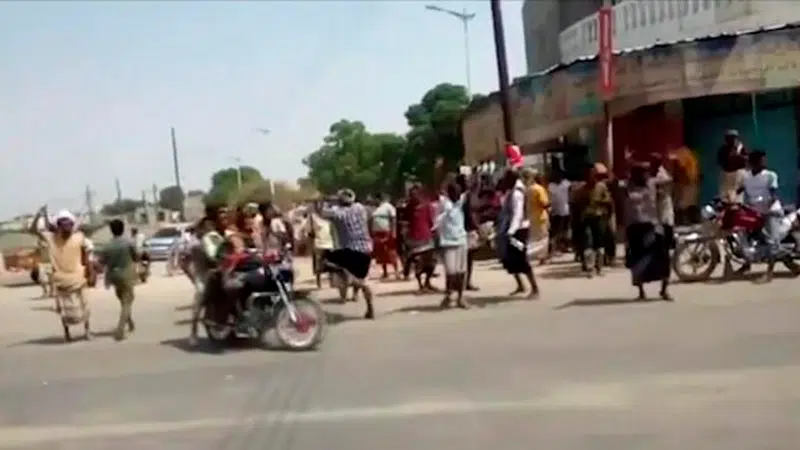
Yemen President urges end of UAE strikes, fears secession
SANAA, Yemen — Yemen’s president urged Saudi Arabia on Thursday to rein in the United Arab Emirates after warplanes from his former ally staged airstrikes on Yemeni government troops, killing and wounding dozens as they headed to retake the key southern port city of Aden from separatists backed by the UAE.
In a rare statement, President Abed Rabbo Mansour Hadi condemned the UAE, a former ally, for “blatant intervention” in Yemen by providing “support, money and plans” for separatists who aim at “dividing up” the country.
His government called upon the United Nations Security Council to condemn the attacks.
The development raises concerns about the future of a Saudi-led coalition that has been fighting Yemen’s Houthi rebels since 2015 and adds another complex layer to the civil war that has ravaged the Arab world’s most impoverished country.


